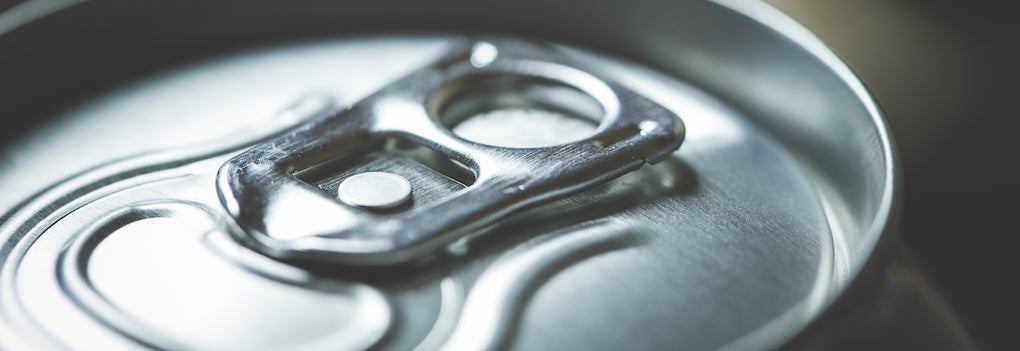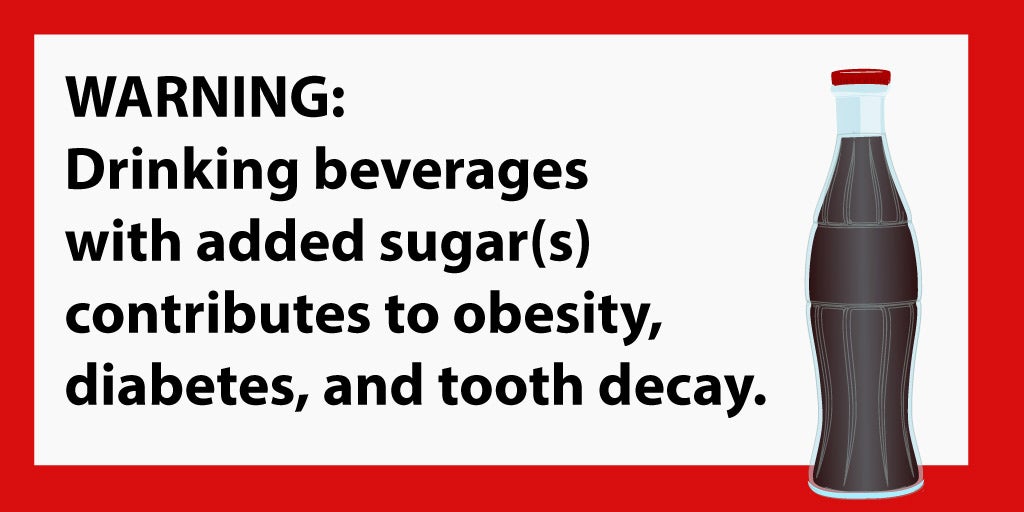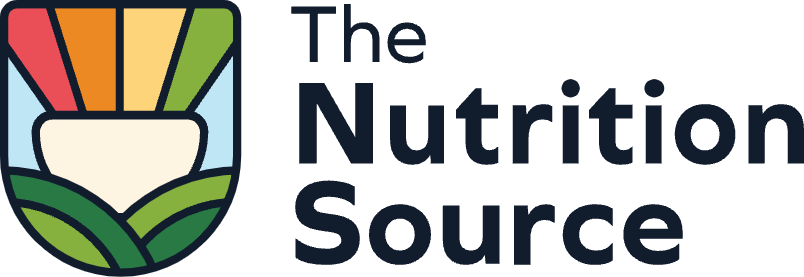
Taxes, warning labels, and industry influence: sugary drinks are a growing topic in policy discussions both nationally and internationally.
Earlier this year, following evidence-based recommendations from the Dietary Guidelines Advisory Committee, the 2015-2020 U.S. Dietary Guidelines—for the first time—included a limit on added sugars at less than 10 percent of total calories. For an average 2000 calorie diet, that means maxing at 200 calories from sugar (50 grams, or roughly 12 teaspoons)—a pretty strict limit considering that most Americans eat more than 300 calories a day from sugary foods or drinks. A shadow was cast specifically on soda and other sugar sweetened beverages (SSBs), which are top sources of added sugar in the American diet. (Drinking just one 20-ounce bottle of soda will push you over the guideline limit.) Internationally, this same limit on added sugar was recommended by the World Health Organization (WHO) in 2015.
In October 2016, the WHO again called out added sugar and sugary drinks in particular, recommending that nations adopt an SSB tax to deter purchase and consumption, as a strategy to prevent associated lifestyle diseases and related health care costs. According to the WHO report, excess calories from SSBs are a significant contributor to the global rise in obesity and diabetes. Obesity has almost doubled worldwide between 1980 and 2014, and the global prevalence of diabetes is nearing 10%—responsible for 1.5 million deaths in 2012. The report concluded that an SSB tax in the range of 20-50% would be most effective in reducing consumption of beverages with added caloric sweeteners such as sucrose, high-fructose corn syrup, or fruit juice concentrates. Fitting these criteria are sodas, sports drinks, iced tea, lemonade, and fruit drinks.
In addition to the SSB tax, the WHO recommended additional fiscal policies, including subsidies for healthful foods like fresh fruits and vegetables to increase consumption.
Soda taxes on a national level
To date, only a few countries—including Finland, France, Mauritius, and Mexico—have successfully implemented an SSB tax. Several other countries have enacted food taxes but faced industry and political resistance or were not been able to closely evaluate the health impact of the tax. To improve the success of a strong tax policy plan, the WHO report offers guidelines such as: 1) implementing a formal monitoring and evaluation program; 2) setting criteria on what items are included/excluded from the tax; 3) proactively counteracting pressure from the beverage industry; and, 4) ensuring compliance with the policy.
Mexico is an excellent case study, a country with the highest worldwide consumption of SSBs that contribute roughly 71% of added sugars to the nation’s diet. Their overweight/obesity rates in 2012 were 72% in adults and 33% in children, along with a diabetes rate in adults that surpassed the global average. [1] With the support of the government and health officials, Mexico implemented a 10% SSB tax in January 2014 to reduce the direct and indirect costs of these diseases. By December 2014, a 12% decline in purchases of SSBs was reported, with an even further drop of up to 17% in low-income households. Sales of beverages excluded from the tax (mainly plain bottled water) increased by 4%.
Local-level momentum in the U.S.
In the U.S., taxes on SSBs have only been implemented in Philadelphia, Pennsylvania and Berkeley, California. Berkeley was the first to implement an SSB tax at one cent per ounce in March 2015, and Falbe et al. examined the impact of the tax four months after implementation in low-income Berkeley neighborhoods. [2] They found a 21% drop in the consumption of SSBs, while two comparison cities without the tax—San Francisco and Oakland—increased their consumption by 4%. Soda and sports drinks saw the greatest declines, while there was a 63% increase in plain water consumption. People in the comparison cities only drank 19% more plain water.
In June 2016, Philadelphia—with a population 13 times larger than Berkeley—passed a tax on both SSBs and artificially-sweetened beverages at 1.5 cents per ounce (although three cents per ounce was originally proposed), which will go into effect January 1, 2017. It includes non-alcoholic beverages made with:
- Any sugar-based sweetener including sucrose, glucose, or high fructose corn syrup
- Any artificial sugar substitute including stevia, aspartame, sucralose, saccharin, neotame, or acesulfame potassium
Beverages fitting these criteria include soda and diet soda, non-100% fruit drinks, sports drinks, flavored water, energy drinks, presweetened coffee and tea, and non-alcoholic beverages fitting the criteria above that are mixed into alcoholic drinks. The tax will be levied on distributors, and could mean a price increase of 20 cents more per individual 12-ounce can or $1.00 more per 2-liter bottle.
In Philadelphia, revenue from the tax is expected to exceed $91 million, and is slated to help fund pre-K expansion, community schools, and a reinvestment in parks and recreation centers. Revenue was the primary messaging of pro-tax campaigns in Philadelphia, which differed from Berkeley where the tax was targeted to offset costs related to the health impact of obesity.
However leading up to the vote in Philadelphia, evidence on the health impact and cost-effectiveness of the was provided by Harvard Chan School researchers from The Childhood Obesity Intervention Cost-Effectiveness Study (CHOICES). Using multiple data sources including the U.S. Census, Behavioral Risk Factor Surveillance System, NHANES, National Survey of Children’s Health, and four national longitudinal studies, the team projected the following benefits from implementation of the initially proposed three cents per-ounce excise tax:
- 36,000 cases of obesity prevented over a ten-year period
- 2280 cases of diabetes prevented over a one-year period once the tax reached its full effect
- $200 million saved in health care costs over a ten-year period
The CHOICES summary also noted that implementing the tax could “serve as a powerful social signal to reduce sugar consumption.” With current legislation in Boulder, CO, Cook County, IL, as well as Albany, San Francisco, and Oakland, CA, momentum on SSB taxes in the U.S. is growing city-by-city.
Update 10/27/16: The CHOICES project has also examined the cost-effectiveness and impact of proposed SSB excise taxes in Albany, Oakland, and San Francisco, CA (one cent per-ounce measures), as well as Boulder, CO (a two cents per ounce-measure). In each of the four cities, “the analysis found that the proposed policy would prevent cases of childhood and adult obesity, prevent new cases of diabetes, increase healthy life years, and save more in future healthcare costs than it would cost to implement.”
Warning labels
 While San Francisco deliberates over their proposed tax, advertisement warning labels in the city are already telling it like it is. On July 25, 2016, legislation went into effect, requiring the following statement on all billboards and outdoor advertisements for SSBs: “WARNING: Drinking beverages with added sugar(s) contributes to obesity, diabetes, and tooth decay.” The American Beverage Association sued for a temporary injunction to block implementation of the law, claiming that its First Amendment freedom of speech rights would be violated were the ordinance to go into effect. The San Francisco court denied the injunction after review of the scientific evidence, with the judge concluding that “the SSB warning required by the ordinance likely passes the factual and accurate requirement.” [3]
While San Francisco deliberates over their proposed tax, advertisement warning labels in the city are already telling it like it is. On July 25, 2016, legislation went into effect, requiring the following statement on all billboards and outdoor advertisements for SSBs: “WARNING: Drinking beverages with added sugar(s) contributes to obesity, diabetes, and tooth decay.” The American Beverage Association sued for a temporary injunction to block implementation of the law, claiming that its First Amendment freedom of speech rights would be violated were the ordinance to go into effect. The San Francisco court denied the injunction after review of the scientific evidence, with the judge concluding that “the SSB warning required by the ordinance likely passes the factual and accurate requirement.” [3]
Beyond billboards, California, New York, Maryland, Washington, and Vermont were the first states to propose legislation for these warning labels to be placed directly on SSB containers. Although none of these proposals have passed, early research suggests that these labels could impact consumer choice. Roberto et al. found through online surveys that the SSB warning labels caused parents and adolescents to choose significantly less of the SSB-labeled drinks than those without the label. [4,5]
Million-dollar pushback from industry creates conflicts of interest
As indicated in the WHO report, backlash to a soda tax is to be expected. The beverage industry has responded to existing proposed legislation with sponsorships and marketing campaigns to stop the movement’s budding support. The American Beverage Association described the Philadelphia tax as “regressive,” that it “unfairly singles out beverages,” and “is against the law.” They have been outspoken about the futility of a soda tax to control obesity and the “lack of success” of established taxes, such as in Mexico.
One study revealed that from 2011-2015 the two largest U.S. beverage companies provided multi-million dollar sponsorships to 96 health organizations, including medical and public health institutions that were actively involved in combatting the obesity epidemic. [6] Despite these donations and an appearance of promoting public health, the soda companies turned around and lobbied against 29 public health bills focused on reducing soda consumption.
The benefitting institutions deny that the sponsorships influenced their health policy decisions, yet the researchers noted that some of these organizations had opposed legislation to reduce soda consumption. Several ended their contracts with the beverage companies in 2016. Other research has evaluated the influence of sponsorships, potentially causing health organizations to withdraw from public debate on tax policies, to collaborate with beverage companies to produce joint educational materials, and to be pressured to grant sponsors conference spots, which provide an opportunity for companies to improve their brand image by presenting at key health conferences. [7-9]
The study authors conclude with the charge that “health organizations reject sponsorship offers from soda companies and find alternative sources of funding,” as accepting money can generate a conflict of interest and introduce a subconscious bias in favor of the donor company.
Legislation aimed at reducing purchase and consumption of sugary drinks is on the rise, though there are many hurdles to successful implementation. For now, each passed measure is a win for public health, as it opens new doors for policy conversations, proposals, and possible implementation in cities, states, and nations.
Related
References
- Colchero, M.A., et al. Beverage purchases from stores in Mexico under the excise tax on sugar sweetened beverages: observational study. 2016, 352:h6704.
- Falbe, J., et al. Impact of the Berkeley Excise Tax on Sugar-Sweetened Beverage Consumption. American Journal of Public Health. 2016, 106:10, pp. 1865-71.
- Schillinger, D., and Jacobson, M.F. Warning Notices on Advertisements for Sugary Drinks. 2016;316(15):1545-6.
- Roberto, C.A., et al. The Influence of Sugar-Sweetened Beverage Health Warning Labels on Parents’ Choices. 2016, 137;2:e20153185.
- VanEpps, E.M., Roberto, C.A. The Influence of Sugar-Sweetened Beverage Warnings: A Randomized Trial of Adolescents’ Choices and Beliefs. Am J Prev Med. 2016, pii: S0749-3797(16)30258-6
- Aaron, D.G., Siegel, M.B. Sponsorship of National Health Organizations by Two Major Soda Companies. Am J Prev Med. 2016, DOI: http://dx.doi.org/10.1016/j.amepre.2016.08.010
- Lowe, A.P. and Hacker G. Selfish giving: how the soda industry uses philanthropy to sweeten its profits. Center for Science in the Public Interest. 2013. http://cspinet.org/new/pdf/cspi_soda_philanthropy_online.pdf. Accessed July 23, 2015.
- Simon, M. And now a word from our sponsors: Are America’s nutrition professionals in the pocket of big food? Eat Drink Politics. 2013. www.eatdrinkpolitics.com/wp-content/uploads/AND_Corporate_Sponsorship_Report.pdf. Accessed October 22, 2016.
- Flint, S.W. Are we selling our souls? Novel aspects of the presence in academic conferences of brands linked to ill health J Epidemiol Community Health. 2016, 70(8):739-40.

